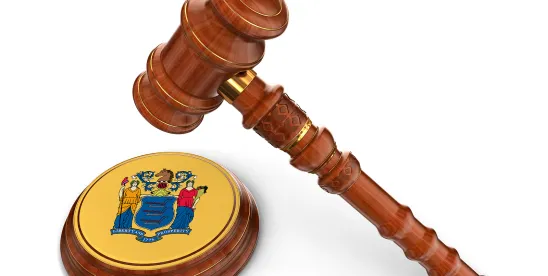The New Jersey Supreme Court recently held that municipalities are not immune from liability under the State’s Frivolous Litigation Statute (the “Statute”), N.J.S.A. 2A:15-59.1, interpreting “party” and “person” in the Statute to encompass municipalities. The Statute was enacted to deter baseless litigation and reimburse parties forced to defend against frivolous actions. See Toll Bros., Inc. v. Twp. of W. Windsor, 190 N.J. 61, 68 (2007); DeBrando v. Summit Bancorp, 328 N.J. Super. 219, 226-27 (App. Div. 2000); and Ferolito v. Park Hill Ass’n, 408 N.J. Super. 401, 407 (2009).
Borough of Englewood Cliffs v. Trautner, ___ N.J. ___ (2025), analyzed whether the Borough of Englewood Cliffs (“Borough”) was liable for sanctions under the Statute. The trial court found that the Borough had initiated a frivolous action against defendants, one property developer, and the Borough’s former counsel who represented it in affordable housing litigation. The defendants sent the Borough frivolous litigation notices demanding the action be voluntarily dismissed. The Borough did not dismiss the complaint, and the defendants subsequently moved to dismiss the complaint, which the trial court granted. Thereafter, the defendants successfully moved for attorneys’ fees under Rule 1:4-8(b)(2) after the trial court found the sole purpose of the Borough’s litigation was to harass, delay, and cause malicious injury to the defendants.
The Appellate Division affirmed, concluding that a public entity is not immune from sanctions under the Statute. Borough of Englewood Cliffs v. Trautner, 478 N.J. Super. 426, 441 (App. Div. 2024). The Appellate Division observed that the issue of whether a State, or its agencies, or political subdivisions, are immune from sanctions under the Statute is unsettled, noting competing Chancery Division rulings. Ultimately, the Appellate Division relied on Matter of K.L.F., 275 N.J. Super. 507 (Ch. Div. 1993), which held that the language of the Statute suggested the Legislature’s clear intent that a “party” must also include a “public entity,” otherwise the effect of the Statute would be thwarted if sanctions are recoverable only from a private party.
The Supreme Court affirmed the Appellate Division’s judgment, as modified, and held that municipalities and municipal corporations are subject to sanctions under the Statute. Slip op. at 3. The Court explained that the Statute must be read as a whole, rather than focusing only on one word, i.e., “party” or “person.” Slip op. at 13. Guided by this approach, the Court determined that the sections of the Statute “refer to one another and both refer to the actor asserting the complaint, cross-claim or defense,” and therefore the text of the Statute indicates that “nonprevailing person” and “nonprevailing party” are interchangeable. Slip op. at 15. In further support of this conclusion, the Court considered the Sponsor’s Statement accompanying the bill later enacted as the Statute, which also used “nonprevailing party” interchangeably with “nonprevailing person” to describe the asserter of the frivolous claim. Slip op. at 15-16.
Moreover, the Court acknowledged that even if there was a meaningful distinction between
“nonprevailing person” and “nonprevailing party,” the Borough would be classified as both a “party” and a “person” under the Statute. Slip op. at 16. The Court explained that N.J.S.A. 1:1-2 defines “person” to include “corporations” and defines “municipality” and “municipal corporation” to include “boroughs.” Slip op. at 16. Accordingly, when reading the Statute, as informed by the definitions provided in N.J.S.A. 1:1-2, the Court reasoned that the Borough, “as a plaintiff who filed frivolous pleadings,” would not only be considered “any other party,” but also a “person” under the Statute. Slip op. at 16.
Concerning the 1995 amendments to the Statute, the Court remarked that they allowed a municipality, under certain circumstances, the right to recover sanctions, not to provide immunity to municipalities engaging in frivolous litigation. Slip op. at 17-18.
Finally, the Court rejected the argument that the sovereign immunity doctrine immunizes municipalities from liability for engaging in frivolous litigation. Slip op. at 21. The Court explained that “municipal immunity is a concept distinct from sovereign immunity under state law” and that “municipalities, unlike States, do not enjoy a constitutionally protected immunity from suit” afforded by the Eleventh Amendment. Slip op. at 23, 21. The Court determined the Borough is liable for sanctions under the Statute because there is no: (1) history of immunizing a municipality from sanctions when it initiates frivolous litigation; (2) support in the text of the Statue providing statutory immunity; or (3) substantive law exempting municipalities or municipal corporations from liability under the Statute. Slip op. at 25-27. Notably, the Supreme Court declined to clarify whether the State is immune from liability under the Statute. Slip op. at 21.
In light of the Supreme Court’s decision, municipalities must be aware of their obligation to comply with the Statute when engaging in litigation and should ensure that all pleadings are asserted in good faith, or otherwise potentially subject themselves, and ultimately taxpayers, to bear the cost of attorneys’ fees.




 />i
/>i

